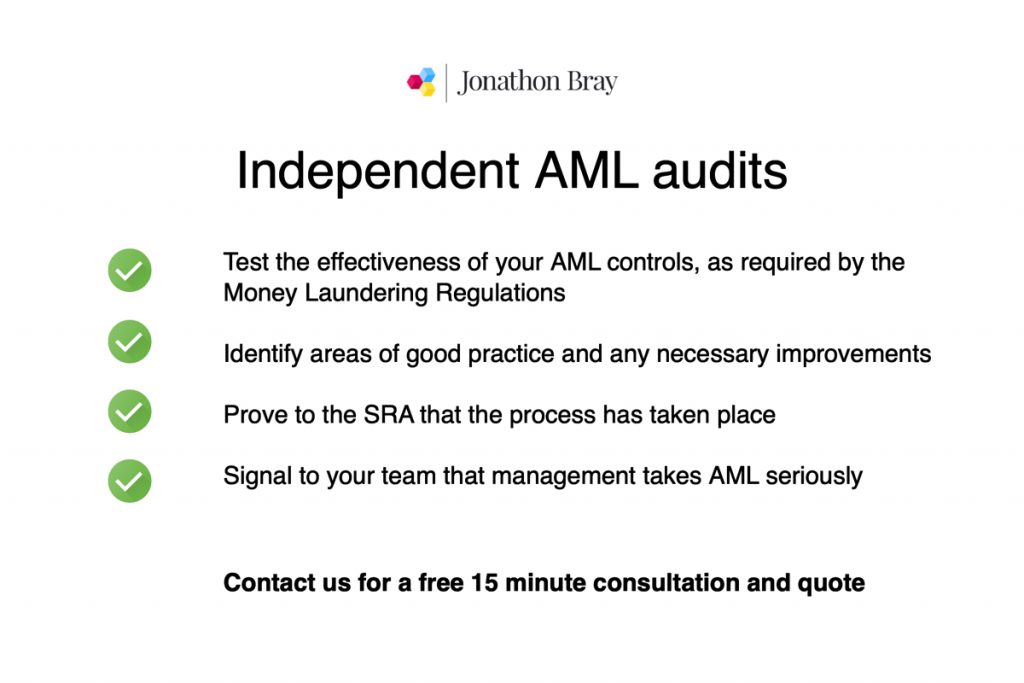What checks should law firms do on new employees?
We often get asked by law firms about ‘employee screening’. What do we need to check? How far do we need to go?
Regulated law firms are responsible for those they employ. And by extension so are the partners, LLP members or directors.
Employee screening is not an easy process to systemise because it touches on a few different areas, including professional regulation, AML rules and the usual pre-employment checks. It is complicated by the fact that checks may be different depending on the qualification of the individual and which department they will be working in, as well as the firm’s own recruitment policy.
SRA Transparency Rules In 2023 – Is Your Law Firm’s Website Compliant?
Not a new topic, but one certainly worth revisiting because the SRA is, one again, ramping up its website reviews focusing on Transparency Rules compliance.
Last summer they warned us of their intention, and we are seeing firms increasingly receiving communications from the regulator advising them of breaching the rules.
Coming into force in December 2018, the Transparency Rules require all regulated firms to display specified information on their websites, including their SRA number, the SRA digital badge (a mechanism to prove they are a regulated entity), complaints information, costs for certain services, and the qualifications and experience of fee earners.
According to the SRA, the rules are designed to ensure people have accurate and relevant information about a solicitor or firm when they are considering purchasing legal services.
The key aim was to help members of the public and small businesses make informed choices, whilst also improving competition in the legal market.
Despite a recent study suggesting that transparency rules have very little impact the public’s purchasing behaviour (shocked face), regulated law firms are required to adhere to them.
In this post we cover:
- The scope of the rules
- Common mistakes and breaches
- Compliance checklist
- Transparency tips
ICYMI: What exactly is a ‘proportionate but risk averse’ approach to sanctions compliance?
The Solicitors Regulation Authority (SRA) recently held a live webinar on sanctions compliance. You can find the official recording on YouTube – it is worth a watch for anyone interested in sanctions compliance.
And of course, that should be everyone. Since the regulator has made it clear through its recent guidance notes, keynote speeches and mandatory questionnaire that the profession’s compliance with sanctions is near the top of the regulatory agenda.
The message is that all firms are exposed to sanctions legislation and therefore steps need to be taken to demonstrate appropriate systems and controls are in place.
However, there is a problem for lawyers in knowing when and how far they need to go in checking third parties’ sanctions status.
ICYMI: SRA Diversity Data Collection Exercise 2023
Edit: Since writing this article, the SRA has announced the dates of the diversity data collection exercise will be 26th June – 23rd July 2023.
It is almost that time again: the SRA will be conducting its biannual diversity data collection exercise this summer.
With the start date yet to be announced, you will have just four weeks to collect, report and publish your firm’s diversity data.
And don’t forget, it is a regulatory requirement to complete this exercise as prescribed by the SRA (Code of Conduct for Firms paragraph 1.5).
SRA Principle 6 also states that you should “act in a way that encourages equality, diversity and inclusion.”
Learn how to collect, report and publish your firm’s diversity data
ICYMI: COLPs: Are You Ready For The SRA Sanctions Questionnaire? [31 May Deadline]
The regulator of solicitors in England and Wales has announced a new round of sanctions assessments. This takes the form of a mandatory SRA sanctions questionnaire.
The assessment will be sent by email to firms’ Compliance Officer for Legal Practice (COLPs) or authorised signatory. Make sure that your team looks out for the SRA email, and do check your spam filters to ensure you do not miss the 31 May deadline.
Read more about the SRA sanctions questionnaire
News and Guidance

SRA Updates
- Diversity data: Reporting your firm data – The SRA diversity toolkit provides guidance to law firms on how to collect, analyse, and use diversity data. This data can help firms understand the diversity of their workforce, identify areas for improvement, and potentially make their workplace more inclusive. The toolkit provides step-by-step guidance on how to collect and use this data in a responsible and ethical way, while ensuring that the privacy of employees is protected. The diversity data collection exercise will run from 26th June 2023, with a hard deadline to report data to the SRA by 23rd July 2023.
- Apply to remain on the roll – In a policy reversal, all non-practising solicitors who wish to remain on the roll will be removed unless they apply through mySRA and pay the annual fee (currently £20). The deadline is 28 May 2023.
Law Society – New and updated practice notes (may require login)
- Updated practice note: Bankrupt beneficiaries – “…Personal representatives who make a distribution out of the estate of a deceased person to a bankrupt beneficiary may be making the distribution to the wrong person, and, if so, will not receive a good receipt.“In such cases, if the bankrupt puts the assets beyond the reach of the trustee in bankruptcy, there is a real risk that the trustee in bankruptcy, on behalf of the bankrupt’s creditors, will claim compensation against the personal representatives…”
Other Updates
- Podcast: Lessons from defending the most significant Solicitor Disciplinary Tribunal cases of recent years – Part 1 – This fascinating podcast features legal experts in the field of professional discipline, discussing their experiences defending solicitors in some of the most significant cases to come before the Solicitor’s Disciplinary Tribunal (SDT) in recent years.
- ICO: “It’s important not to get caught out” – New SARs guidance for employers issued – The ICO has issued new guidance for employers dealing with Subject Access Requests. “What we’re seeing now is that many employers are misunderstanding the nature of subject access requests, or underestimating the importance of responding to requests. For example, employers may be unaware that requests can be submitted informally, such as over social media, or do not have to contain the words ‘subject access request’ in order to qualify as a legally binding request. Similarly, employers may not realise that there is a strict time frame for responding to requests, and this must be kept to.”
Free webinars

Next session: ‘Ask us anything!’
May’s live webinar will be slightly less structured, as the team tackles your burning compliance and AML-related questions.
Stressed by sanctions? Driven loopy by LSAG? Confused by conflicts?
This is the place to get your questions answered live.
And just in case you are feeling shy on the day, we are canvassing our client firms for their questions in advance. Chances are, someone will have the same question as you!
Time and date: 31 May 2023 at 12pm
As always, clients get priority access, with limited space available. Invitation to be sent in the coming days.
New LSAG guidance | Recent SRA focus | Client and matter risk assessments (recording)
Jon, Rachael and Carly tackled some of the biggest issues facing law firms’ AML compliance. Are you up to speed with non-proliferation financing and discrepancy reporting? Do you know what to expect from an SRA visit? What do ‘client and matter risk assessments’ mean, and how should you implement them?
Recording: View here use passcode =VQc8mW$
Slides: Download here
SRA and SDT disciplinary decisions

- James Huxtable – struck off for serious accounting irregularities and hiding emails relating to an SRA investigation.
- Christopher Griffith – paralegal struck off following conviction for sexual offences.
- Sarah Louise Williams – suspended indefinitely after having been found to have continued practising whilst bankrupt.
- Altef Bhurawala – solicitor struck off for dishonestly advising his client to structure an award of damages in a way that would not affect the client’s benefits.
- Stuart Nash – fined £1,600 following conviction for failing to provide a breath specimen when requested by the police.
- Amina Begum – private client paralegal struck off for dishonestly diverting payments from a probate estate to her personal account, and that of a sibling.
- Andrew Hugh Butler – struck off for transferring £19k of client money through improper invoices












